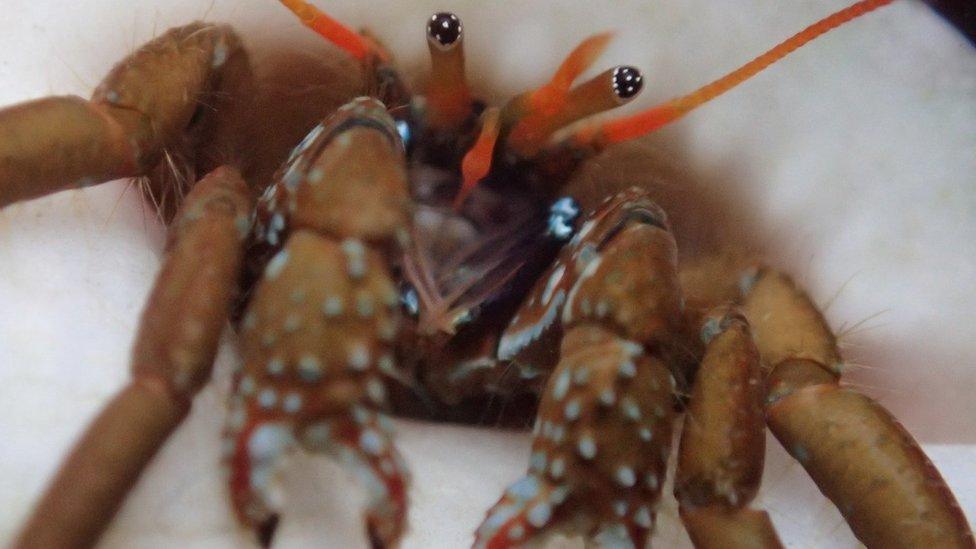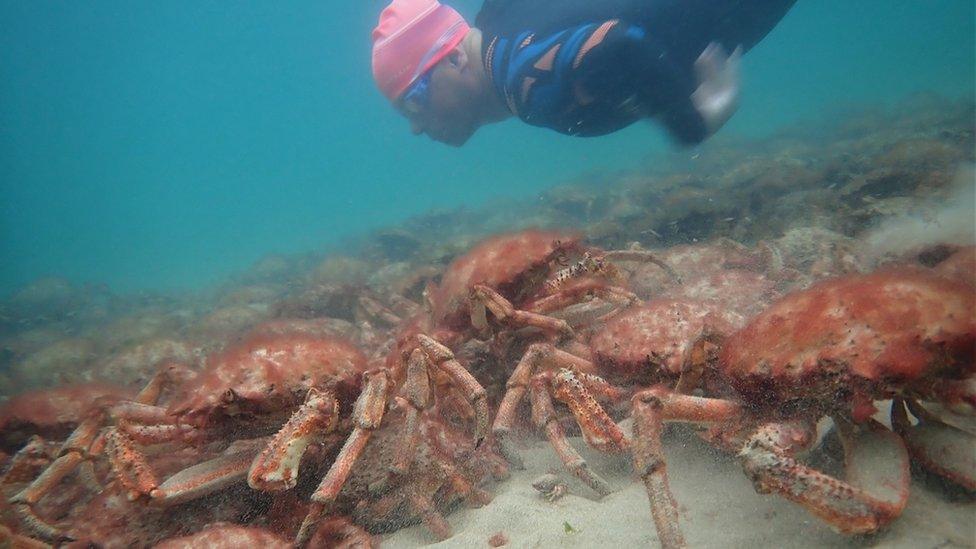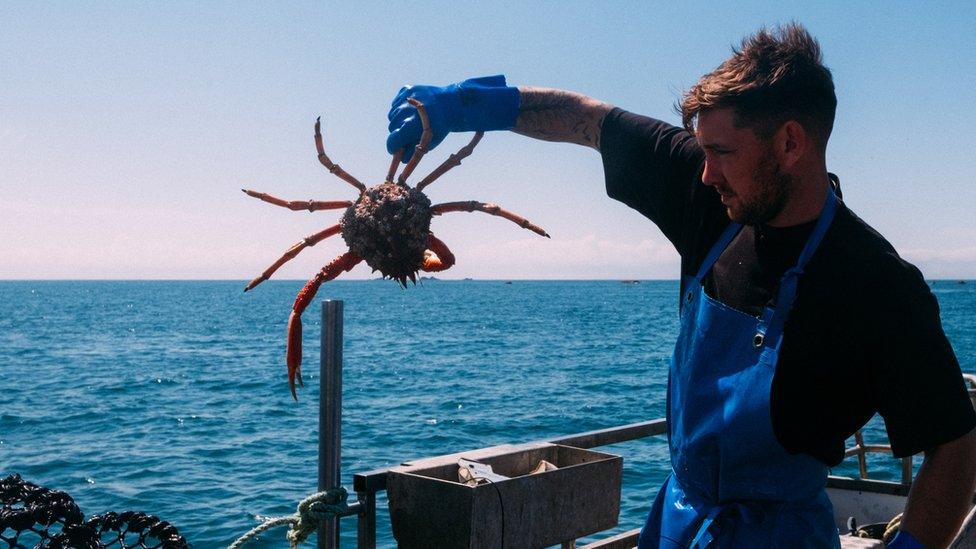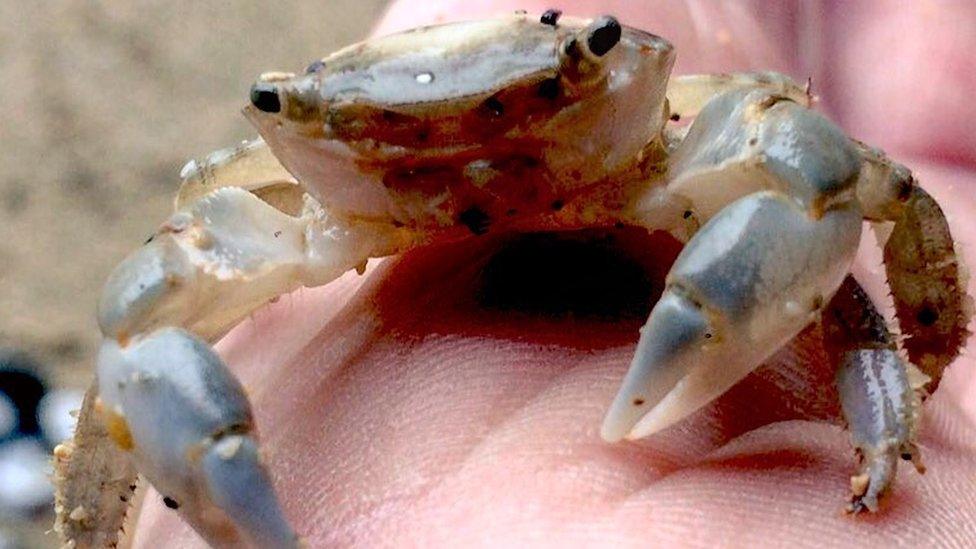Cornwall's rockpool species 'threatened by climate change'
- Published

The St Piran's hermit crab disappeared from Cornwall in the 1980s but was spotted again in 2016
A study has found many rockpool species are threatened by climate change and would not survive crossing the English Channel's currents.
The University of Exeter's study, external focused on the St Piran's hermit crab, which reappeared in Cornwall in 2016.
It had not been seen in England since 1985 and was found to have travelled on "freak" currents from South Brittany in France, searching for a cooler climate.
Rising sea temperatures put many of England's rockpool species at risk.
Christophe Patterson, from the Centre for Ecology and Conservation on Exeter's Penryn Campus in Cornwall, said: "We modelled how ocean currents could carry larvae from Brittany to the south-west UK, and we found very few opportunities for this to happen.
"Only once in every 10 years would the currents be suitable for the tiny St Piran's crab larvae to cross the Channel, and even on these currents, the time it takes for larvae to be carried to the UK is much longer than most other species' larvae can survive.
"Other groups like sea snails, sponges and seaweed just don't live for long enough in open water to get here."
The study focused specifically on the tiny crab clibanarius erythropus, which is usually found in the Mediterranean, the Black Sea and eastern Atlantic.
The BBC's Springwatch show ran a competition to give the species a common name, with viewer's choosing "St Piran's crab" after Cornwall's patron saint.

Follow BBC News South West on Twitter, external, Facebook, external and Instagram, external. Send your story ideas to spotlight@bbc.co.uk, external.
Related topics
- Published26 August 2021

- Published9 February 2021

- Published2 December 2015
